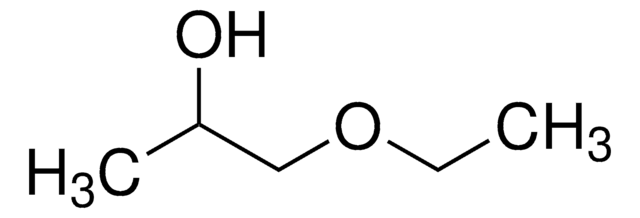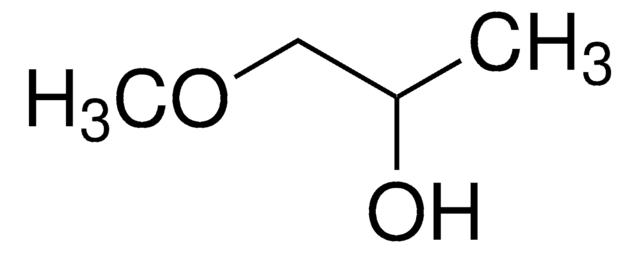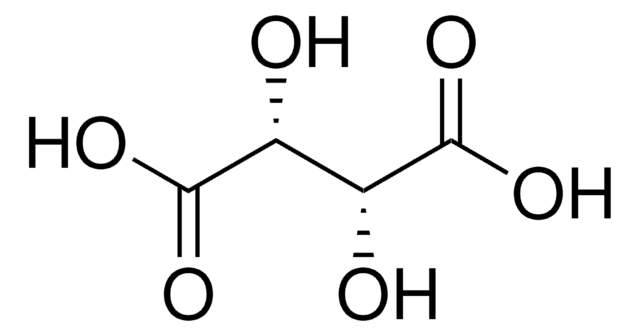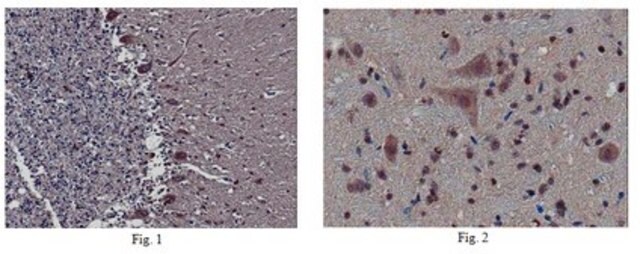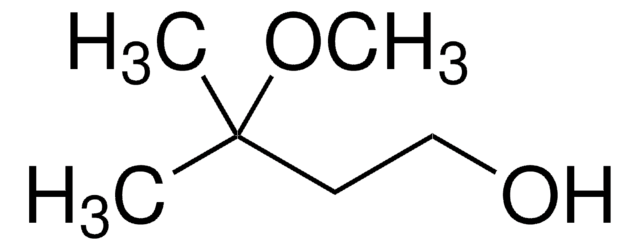All Photos(1)
About This Item
Linear Formula:
C2H5O(CH2)3OH
CAS Number:
Molecular Weight:
104.15
EC Number:
MDL number:
UNSPSC Code:
12352100
PubChem Substance ID:
NACRES:
NA.22
Recommended Products
Quality Level
Assay
97%
form
liquid
refractive index
n20/D 1.417 (lit.)
bp
160-161 °C (lit.)
density
0.904 g/mL at 25 °C (lit.)
SMILES string
CCOCCCO
InChI
1S/C5H12O2/c1-2-7-5-3-4-6/h6H,2-5H2,1H3
InChI key
XHMWPVBQGARKQM-UHFFFAOYSA-N
Related Categories
Signal Word
Warning
Hazard Statements
Precautionary Statements
Hazard Classifications
Acute Tox. 4 Inhalation - Eye Irrit. 2 - Flam. Liq. 3
Storage Class Code
3 - Flammable liquids
WGK
WGK 3
Flash Point(F)
129.2 °F - closed cup
Flash Point(C)
54 °C - closed cup
Personal Protective Equipment
dust mask type N95 (US), Eyeshields, Gloves
Choose from one of the most recent versions:
Already Own This Product?
Find documentation for the products that you have recently purchased in the Document Library.
Customers Also Viewed
Vinegar production from fruit concentrates: effect on volatile composition and antioxidant activity.
Eduardo Coelho et al.
Journal of food science and technology, 54(12), 4112-4122 (2017-11-01)
Vinegar stands as a highly appreciated fermented food product due to several functional properties and multiple applications. This work focuses on vinegar production from fruit wines derived from fruit concentrates, to attain a food product with nutritional added value. Four
Ana-Marija Jagatić Korenika et al.
Molecules (Basel, Switzerland), 25(18) (2020-09-26)
Commercial sparkling wine production represents a relatively low but important part of the Croatian wine production, especially in the Zagreb county. This study presents the results of volatile aroma compounds profile and organic acid composition of commercial sparkling wine samples
Enbo Xu et al.
Journal of food science, 80(7), C1476-C1489 (2015-06-20)
Enzymatic extrusion, instead of traditional steam cooking, to treat rice is an efficient and alternative pretreatment for Chinese rice wine fermentation. In order to determine the formation of volatiles in enzymatic extrusion-processed rice wine (EE), and to confirm its characteristic
Our team of scientists has experience in all areas of research including Life Science, Material Science, Chemical Synthesis, Chromatography, Analytical and many others.
Contact Technical Service
